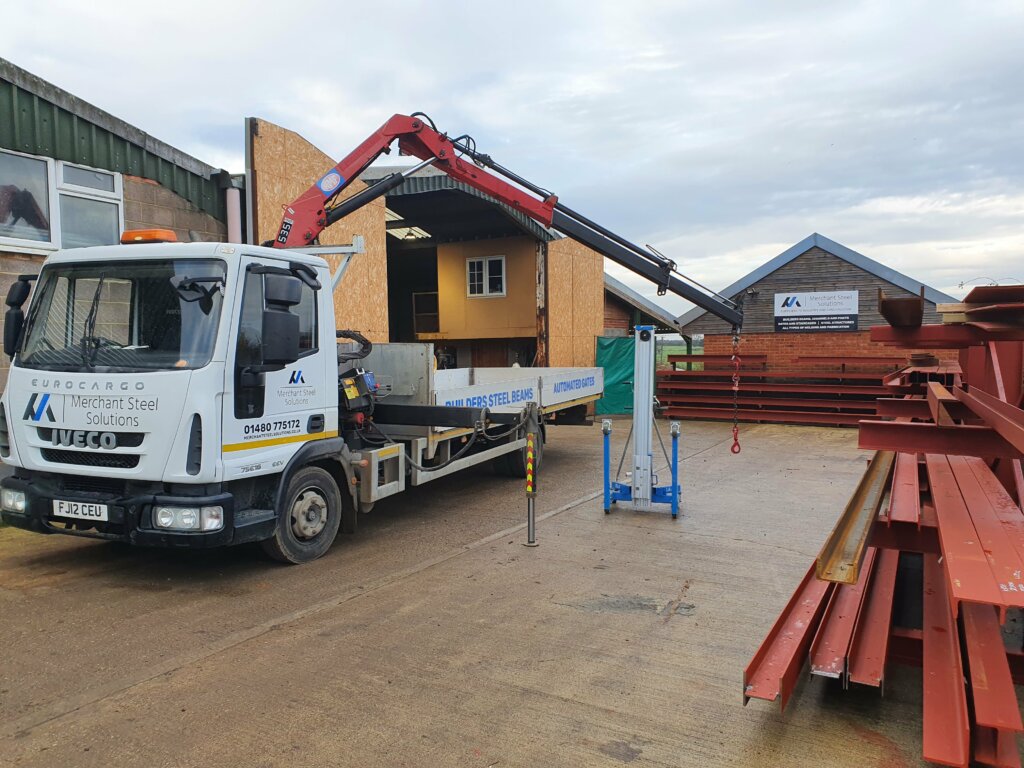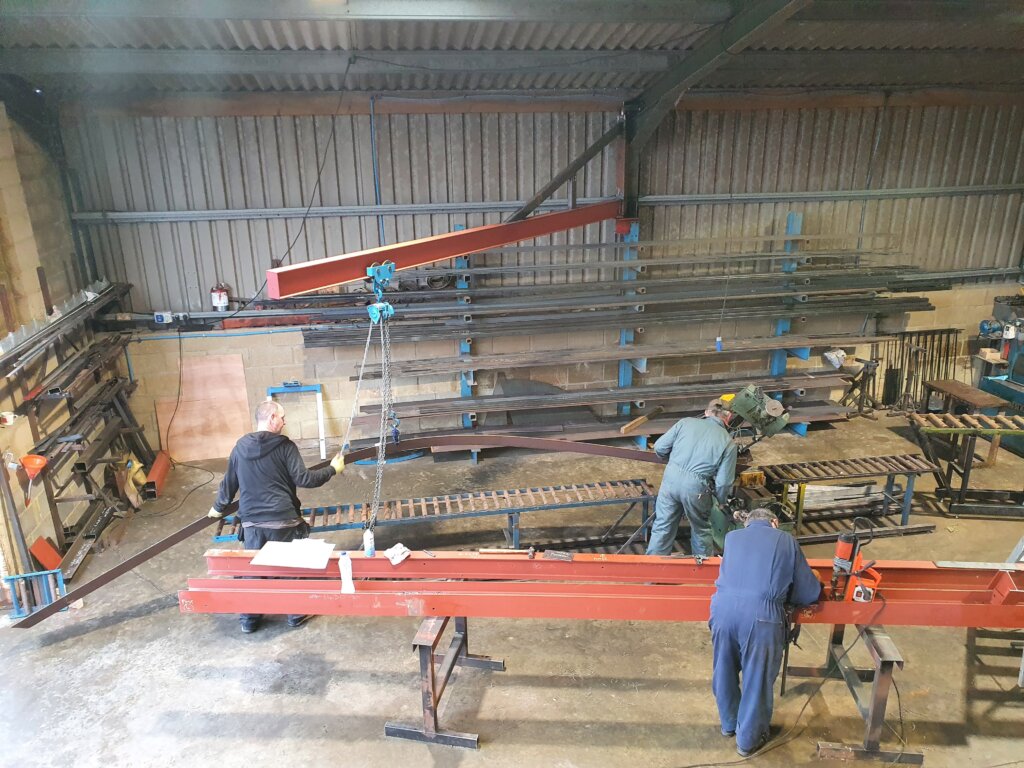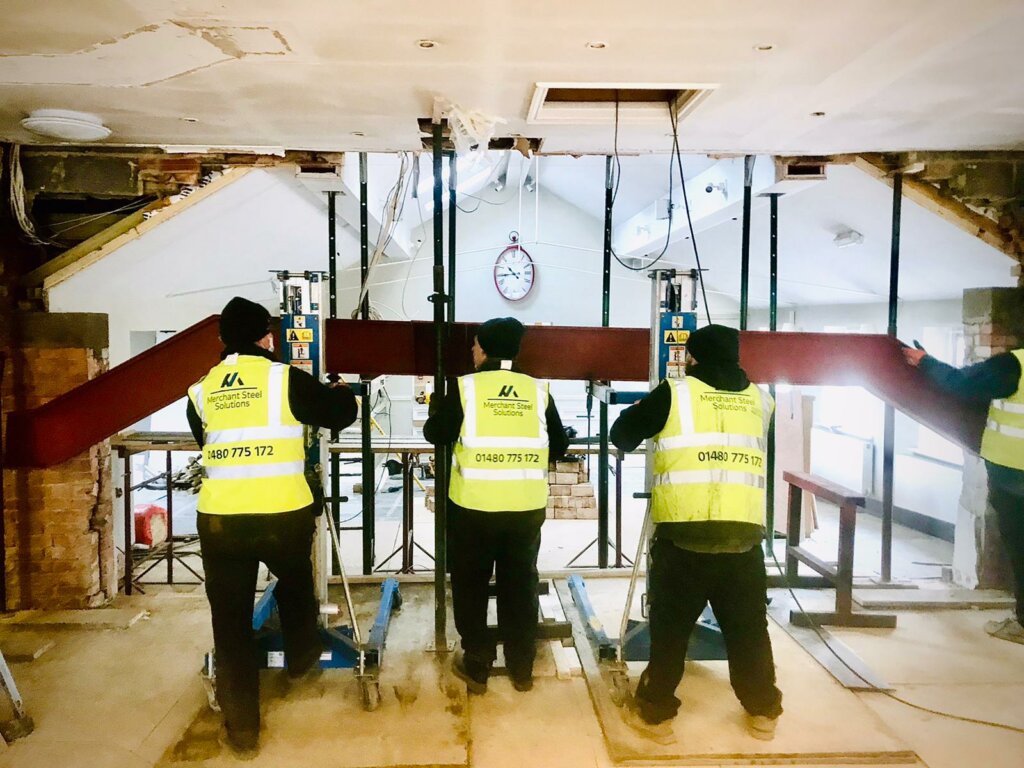Geoff Kendell’s 100 Mile Bike Journey for Amnesty International
On Sunday, the 29th of May, Metalogic’s Geoff Kendell will take to the road on a 100 mile bike ride! Geoff estimates that this trip will burn 5,000 calories!
Why would Geoff put himself through all of this?!
The purpose of Geoff’s trip is to raise money for Amnesty International. Stephen Powderley, our late friend and colleague, nominated Amnesty International at his funeral. To honor Stephen and to raise money for a great cause, Geoff has dedicated his biking journey to Amnesty International.
Please join us in supporting a worthy cause by visiting Geoff’s Just Giving Page below!
Geoff’s Just Giving Page
Image courtesy of Christian Lue via Unsplash
100 Push-Ups a Day in May for Cancer Research
Throughout the month of May, Metalogic’s very own John Padbury has taken on a challenge to perform 100 push-ups a day.
This challenge has been more than a fitness journey to John – in fact, this push-up challenge serves as a fundraiser for Cancer Research UK. After the tragic loss of our dear friend and colleague Stephen Powderley after his battle with cancer, this fundraiser means the world to John and to the Metalogic team.
To see more about John’s challenge, or to donate to the fundraiser, please visit John’s Giving Page below!
John’s Giving Page
Steelmakers to Benefit as EU Moves to Drop Barriers to Imports From Ukraine
The suspension of duties on imports of Ukrainian products won approval in a European Parliament session May 19, with the measure next needing to be endorsed by the European Council for it to take effect, a European Commission spokesperson told S&P Global Commodity Insights.
Final approval is expected during the next Foreign Affairs Council meeting in early June, according to the spokesperson.
To help boost war-ravaged Ukraine’s exports to the EU, the European Commission proposed April 27 suspending for one year its import duties on all Ukrainian exports to the bloc, including on Ukraine’s major revenue item — steel.
The move would see the suspension of all EU anti-dumping and safeguard measures in place on Ukrainian steel, as well as the drop of all rolled steel product-specific quotas, which Ukraine has had to pay 25% customs charges for exceeding, in line with the existing system that full trade liberalization is coming to temporarily replace.
In theory, the biggest effect from the lapse of duties and quotas should be on the exports of hot-rolled coil, or HRC, and plate, as the EU removes the Eur 60.5/mt antidumping duty on Ukraine’s HRC, and drops the quota for plate, which allows the export of 1 million mt/year, the equivalent of roughly a third of the 2.8 million-2.9 million mt/year plate output by Metinvest. However, that total was before Feb. 24, when Russia attacked Ukraine.
Unlikely to fully take advantage of move
Now, with Metinvest’s two major steelworks — Ilyich and Azovstal — remaining disabled indefinitely in Mariupol, the scene of intense fighting, and other mills in the country that have resumed operations still somewhat hamstrung by difficulties with inbound and outbound freight, Ukrainian industry looks too scarred by the war to use the duty-free regime to the maximum.
As a result of the war and production stoppages, Metinvest’s steel output, at 1.96 million mt in the January-March quarter, dropped by 25% on the quarter, with most of this made before the war.
In early April, Ukraine’s major long rolled steel producer, ArcelorMittal Kryviy Rih put back into operation one of its four blast furnaces, all halted in late February. It is gradually ramping up operations but still has little to sell.
“Our production has been on hold for most of the first quarter,” said a spokeswoman for ArcelorMittal Kryviy Rih, which in 2021 accounted for 23% (4.9 million mt) of Ukraine’s steel production.
“We do export exclusively to the EU, because we are cut off from other markets by broken logistics, and because we are linked to the EU by the railway, but everything we managed to ship in January-March were small batches of remaining inventories and iron ore concentrate,” she said, adding that these sales are burdened with long lead times and high delivery costs.
“EU import quotas allow duty-free imports of steel products in volumes equal to our average annual imports,” the spokeswoman said, and the EU has recently even increased the quota for Ukrainian mills via redistributing the volumes of steel imports from Russia and Belarus that the block banned as part of sanction, she added.
Significant help for Ukrainian steelmakers
The blockade by Russia of Ukraine’s sea ports and Ukraine’s severely depressed current demand for steel has left the nation depending effectively on only one market — the EU — so lifting these barriers is without doubt a big aid for struggling Ukrainian steelmakers.
And 4 million mt/year hot- and cold-rolled coil and sheet producer Zaporizhstal, 49.99% owned by Metinvest, seems to be in a stronger position to make the most of the scrapped duties and quotas. Since its restart 1.5 months ago it has already exceeded 50% of its full capacity.
Metinvest’s fully owned billet and long rolled steel producer, Kamet Steel in Kamianske, in the Dnipropetrovsk region, is another one to benefit right away; in Q1, it increased output to 607,000 mt, with a good part of this shipped as billet for further processing to Bulgarian sections and bar mill Promet, also part of Metinvest. Billet exports are not quota-regulated, but removing quotas from Kamet’s rolls should help maximize their sales.
The US suspended the Section 232 25% tariffs May 9 on steel imports from Ukraine for one year, amounting to partial relief because of a few product-specific duties staying in place.
Story courtesy of Ekaterina Bouckley and Annalisa Villa – S&P Global Platts via Eurometal
Image courtesy of @Pixabay via Pexels
The JMS Team Grows Bigger
On March 16th, 2022, the JMS Team was fortunate to welcome aboard Amlan Borkakati as a software support analyst. Amlan joins the team with a great deal of experience in ERP and technology consulting. Amlan earned his Bachelor’s degree at Visva Bharati University in Calcutta, India in 2007. Not long after, in 2018, he hit the books yet again and earned his Master’s degree from the University of Waterloo in Ontario. Amlan is a talented and accredited individual – he is PMP (Project Management Professional) certified, a Scrum Product Owner, and an SAP Business Objects Access Controller.
Amlan is from the beautiful yet underappreciated Indian state of Assam. Through his professional career, he was joyous for the opportunity to work in Brazil where he attended the 2014 World Cup, the 2016 Rio Olympics, and music festivals such as Rock in Rio and Lollapalooza. He enjoyed his time in Brazil and, now that he has moved away, he still is learning to perfect Brazilian Barbecue.
In his free time, Amlan enjoys supporting Brazilian soccer club Atlético Mineiro (or Galo), attending live concerts, cooking, being outside, and spending time with his wife and Golden Retriever.
We hope you will join us in extending a warm welcome to Amlan, as we are elated to have him join our growing family!
Image courtesy of Charles Deluvio via Unsplash
As War Wages On in Ukraine, Global Steel Industry is Impacted
For more reasons than we can count, war is an ugly and devastating ordeal that wreaks economic havoc. The Russian invasion of Ukraine has induced pain and suffering not just for the Ukrainian people, but for the whole world. Destruction, trauma, and potential food shortages extend through the Middle East and Africa which receive large agricultural exports from Ukraine.
With the hardships of war, economic struggles are expected. Among the supply chain disruptions prompted by the conflict is its effect on the steel industry. One of the largest metallurgical plants in Europe is located in Ukraine. Most industrial production in Ukraine has been suspended, including most steel plants. Restarting the damaged facilities could take months or even years. GMK Center, a Ukrainian-based and steelworking-focused analytics group, estimates that 90% of Ukrainian steelmaking capacities are no longer operational. On the other side of the conflict, Russia’s steel production continues; however, many countries are boycotting trade with Russia. As a result, steel prices are rising and commodities such as nickel are trading at a tremendous price. Could steel turn into a luxury commodity?
Ukraine is the eighth largest steel producer in the world, while Russia is the third. Combined, they are the second greatest steel exporter globally, only falling behind China. With these steel titans struggling, the industry suffers greatly.

In Europe, about 40% of steel production is a result of electric-arc furnaces, rather than blast furnaces. As the name suggests, these furnaces are powered by electricity. Production through the electric-arc furnaces is much cleaner and is considered by many to be the future of steel production. With the war, however, electricity prices are rising at frightening rates due to the similar rise in gas prices. As a result, this cleaner means of production is becoming less convenient.
As Ukraine and its people continue to suffer through the war, so, too, does the steel industry. Steel is an essential aspect to many industries (automotive, construction, infrastructure, etc.); these ramifications faced by the steel industry will have global implications.
Story via:
Javier Blas – Bloomberg via The Washington Post (Story)
Stanislav Zinchenko – GMK Center via gasworld (Story)
Image courtesy of Noah Eleazar via Unsplash
Merchant Steel Solutions Enters Industry 4.0 with iMetal
Merchant Steel Solutions – History
Merchant Steel’s origin story begins in a Cambridgeshire garden shed belonging to Kev Rayner. Kev recognised the importance of steel fabrication to the construction industry, but he noticed that missed deadlines and backups were creating issues for the industry. To combat these issues, Kev created Merchant Steel Solutions in 2018 and began to produce gates and wrought iron railings out of his garden shed.
Shortly thereafter, Kev and Merchant Steel Solutions were joined by David Biddle who had, just months prior, sold his timber company to retire. After a brief 5 month break, David decided that retirement wasn’t for him and he, instead, became an integral part of Merchant Steel Solutions. Bringing his years of merchanting experience and business acumen to the table, David helped turn Merchant Steel Solutions into a metals stockholder and fabricator that tailors to the building industry. Before long, the pair realised that they had outgrown their garden shed and would need a larger facility. Merchant Steel then relocated to St. Neots

Finding iMetal – The Perfect Solution
Once they were up and running at their new larger facility, David and Kev noticed that something important was missing. David’s previous work experience taught him the value of a modern ERP system. An industry-specific, modern ERP system can be the competitive edge that a new company needs. So, the search was on for an effective system.
The experienced team at Metalogic knew exactly what Kev and David needed… iMetal.
The iMetal system provided Merchant Steel with a comprehensive and affordable solution to meet the challenges they faced with their startup. iMetal is an enterprise class ERP system which provides Merchant Steel precise control over not only their inventory, but their entire business process from quoting/sales orders, to production and shipping, to billing and accounts while also providing the full traceability of casts and physical and chemical properties. The system also needed to assist with accreditation of industry standards and government regulation conformance. iMetal was selected as their preferred solution.

Implementation
The iMetal project was launched and the implementation was scheduled.
“We were surprised with the excellent support we received from Mark Beard who trained us on the system. He made himself available at any time of day and weekends as he understood my need for training outside office hours.” – David Biddle
Through the implementation, there were also huge challenges; at the time of the implementation, the world was in the middle of the pandemic. Kev and David had to do training while running their business day to day. This was a challenge. Fortunately, Mark broke training down to 1-2 hour segments and they were able to complete everything within two weeks, even through remote training. The Merchant Steel staff is now fully engaged with the system. Each member has different access depending on their job description.
Mark Beard would like to add that this was a unique implementation and presented a few challenges due to the pandemic. Despite this, Mark Beard really enjoyed working with Merchant Steel. He noted that whilst implementing remotely can be challenging, it created some advantage in that he was able to break down the tasks into smaller sections as opposed to being on site where everything must be done at once. This is helpful for smaller businesses with less resources to be able to manage the training more easily.
The flexibility of the iMetal implementation team allowed Merchant Steel Solutions to conduct their business with minimal disruption to their daily operations. The training team was nothing short of impressive as they persevered through the challenges created by the pandemic. As Albert Einstein once said, “in the midst of every crisis, lies great opportunity.”
“iMetal has offered our team speed and efficiency. From quotation and sales to stock management. One of the most important aspects of iMetal is its full traceability and easy access to real-time stock on the system.” – David Biddle

We are delighted to have Merchant Steel Solutions as a valued partner. The iMetal platform continues to grow not only here in the UK, but also around the world from the Middle East to North America. It’s a small world, afterall.
Merchant Steel Solutions is located at:
Pasturelands Farm, Taylors Lane, Buckden, Cambridgeshire PE19 5UW.
Merchantsteelsolutions.com
Ukraine War to Delay Automotive Sector Recovery: Worldsteel
The expected recovery of the global auto industry is still being hampered by the microchip shortage. The situation was expected to ease by the second half of this year; however, the war in Ukraine is likely to delay the return to normal of the supply chain, especially in Europe. So said worldsteel director general Edwin Basson during Thursday’s short-range outlook conference attended by Kallanish.
“Last year was disappointing for the automotive sector. The microchip shortage led to reduced demand and increased prices,” the executive commented. “It had been expected that the supply bottlenecks would dissipate in the second half of 2022. However, the war in Ukraine is likely to delay the recovery.”
Automotive production in China is estimated to continue to grow between 2022 and 2023, after rising 4.8% on-year in 2021. Meanwhile, the recovery in the US market in this period is likely to be driven by higher demand for light vehicles. Both markets are in line with the global increasing production share of electrical vehicles in developed economies.
“EVs will continue raising their presence in 2022. The new technologies and materials used in their production do not threaten the consumption of steel in the automotive industry. We see a positive development in the sector, which is already anticipating an evolution from EVs towards fully automated vehicles,” Basson explained.
Global sales of EVs in 2021 reached 6.6 million units, almost 100% higher on-year. Their share in overall shipments increased from 2.5% in 2019 to almost 8.6% in 2021.
Story courtesy of Todor Kirkov via Kallanish
Image courtesy of Carlos Aranda via Unsplash
Aluminum Associations Representing G7 Nations Joint Statement On Ongoing Russian Invasion Of Ukraine
April 6, 2022 – The Aluminum Association, European Aluminium, the Aluminium Association of Canada and the Japan Aluminium Association released the following statement on the ongoing Russian invasion of Ukraine:
“Our organizations join the rest of the free world in condemning the Russian invasion of Ukraine in the strongest possible terms. The recent images to emerge suggesting ongoing crimes against humanity in the region are frankly appalling. We support the use of economic sanctions and other measures as a diplomatic tool to combat Russian aggression. NATO and its allies are engaged in the highest level of conflict diplomacy on a global security and humanitarian emergency with far reaching impacts across many industries. As representatives of aluminum companies around the world, we also recognize that the conflict is challenging our industry – like many others – in a profound way. Russia is a significant global supplier of aluminum so it is likely that these challenges will continue to compound over time. Our organizations will work with our respective governments to provide relevant industry data and a clear-eyed assessment of what sanctions and similar measures might mean for aluminum producers, users and end consumers. For now, our primary concern is for a speedy and peaceful resolution to the current crisis.”
Charles Johnson, President & CEO
The Aluminum Association
Paul Voss, Director General
European Aluminium
Jean Simard, President & CEO
Aluminium Association of Canada
Yasushi Noto, Executive Director
Japan Aluminium Association
Story via Modern Metals
Image courtesy of Cash Macanaya via Unsplash
Built by JMB Creative

